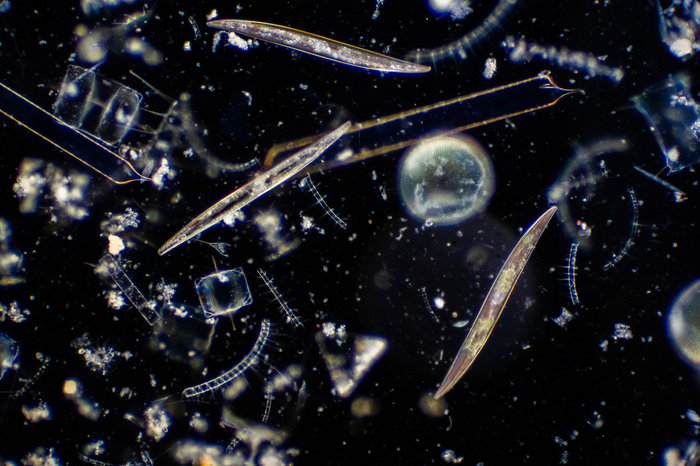Glow-in-the dark marine algae ‘more resilient to climate crisis’
Phytoplankton are an important source of food for marine life

Marine phytoplankton are much more resilient to the looming climate crisis than previously thought, new research shows.
An international team of scientists revealed that a mechanism, known as nutrient uptake plasticity, allows marine algae to adapt and cope with nutrient-poor ocean conditions expected to occur over the next decades in response to global warming of the upper ocean.
Phytoplankton are tiny algae which drift at the ocean’s surface and are an important source of food for marine life.
While photosynthesizing, these algae absorb nutrients, such as phosphate and nitrate, take up dissolved carbon dioxide and release oxygen, which makes up for about half of the oxygen that we breathe.
Knowing how marine algae will respond to global warming and to the associated decline of nutrients in upper ocean waters is therefore crucial for understanding the long-term habitability of our planet, the researchers claim.

However, Dr Eun Young Kwon, a researcher at the IBS Center for Climate Physics at Pusan National University, South Korea, warned: “Even though our study demonstrates the importance of biological buffering of global-scale ecological changes, this does not imply that phytoplankton are immune to human-induced climate change.
“For instance, worsening ocean acidification will reduce the calcification rates of certain types of phytoplankton, which can lead to large-scale shifts in ecosystems. These factors are neither well understood nor represented yet in climate models.”
How the annual phytoplankton production rate will change globally over the next 80 years remains highly uncertain. The latest report of the Intergovernmental Panel on Climate Change (IPCC) states an uncertainty of -20 per cent to +20 per cent, which implies it is not yet known whether phytoplankton will increase or decrease in future.
“Future Earth system models need to use improved observationally-based representations of how phytoplankton respond to multiple stressors, including warming and ocean acidification. This is necessary to predict the future of marine life on our planet” says Professor Axel Timmermann, a coauthor of this study and director of the IBS Center for Climate Physics.
The study was published in Science Advances.
Join our commenting forum
Join thought-provoking conversations, follow other Independent readers and see their replies
0Comments